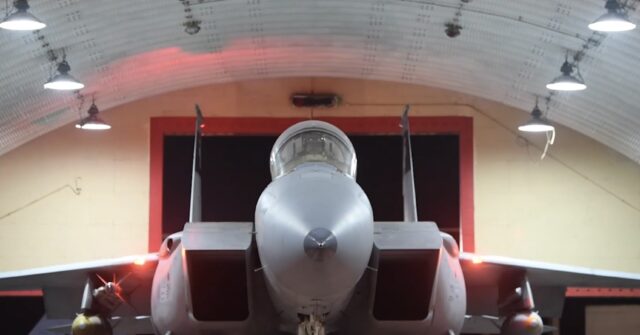Israeli Prime Minister Benjamin Netanyahu has articulated a strategic military approach in Syria, likening Israel’s actions to the British destruction of the Vichy regime’s naval fleet in World War II. He framed this as an essential move to prevent remaining Syrian military capabilities from falling into the hands of jihadist groups. Since the ousting of Bashar al-Assad by rebel forces, Israel has undertaken hundreds of airstrikes aimed at neutralizing heavy weaponry and advanced military assets that could be exploited by rebels or other militant factions. These operations are part of a broader effort to ensure the security of Israel against potential threats arising from the instability in Syria.
The Israeli Defense Forces (IDF) elaborated on their recent military actions, which involved a significant focus on strategic targets in Syria. Within 48 hours, the IDF claimed to have struck a majority of the Syrian military’s strategic weapon stockpiles. Naval operations engaged two vital Syrian Navy facilities, and air missions saw the destruction of advanced missiles and various other military assets, including aircraft and defense systems. The extensive aerial campaign underscored Israel’s commitment to neutralizing threats with a series of simultaneous strikes that targeted multiple locations across Syria, including major military hubs.
Netanyahu has reiterated that while Israel intends to maintain non-interference in the internal dynamics of Syria, it remains unwavering in its commitment to safeguard its national security interests. He has expressed a willingness to engage with any new Syrian regime, provided it does not facilitate Iranian military presence or weapons transfers to hostile entities like Hezbollah. Netanyahu’s statements suggest an expectation that any regime in power must adhere to an understanding of Israel’s security needs, thus placing a clear boundary on diplomatic engagement.
In addressing the broader implications of the turmoil in Syria, Israeli officials have also indicated their concern for minority groups threatened by various factions within the conflict, specifically the Kurds. They have approached the United States with proposals aimed at providing support and protection for these communities, illustrating Israel’s recognition of the multifaceted nature of the Syrian civil war. This concern for vulnerable groups demonstrates a nuanced stance that complements Israel’s overarching security strategy.
The ongoing military operations reflect Israel’s proactive defense posture amid a rapidly changing geopolitical landscape. The consistent airstrikes and naval engagements signify a commitment to counter any rising threats from within Syria that could potentially destabilize the region further or directly challenge Israeli interests. The IDF’s ability to execute coordinated air missions and neutralize advanced armaments showcases Israel’s military capabilities and its strategic planning to maintain a deterrent presence in the region.
In conclusion, Netanyahu’s statements and the IDF’s military operations underscore the critical intersection of regional security and external political dynamics in Syria. Israel’s focus remains primarily on its own security while navigating the complexities of engaging with evolving regimes. The ongoing dialogue with the U.S. about supporting minority groups highlights Israel’s broader strategic interests in shaping the outcomes of the Syrian conflict. The situation remains fluid, with the actions of both Israel and the Syrian factions potentially leading to significant implications for long-term stability in the region.

